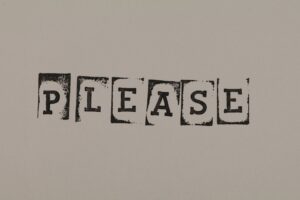Transcript of the video
On Saturday, October 7, war broke out between Israel and Hamas. The whole world is following this conflict with great attention and emotion.
Welcome to another episode of Learn French with News.
I've been asked a lot to make a video on this topical issue, because it's obviously omnipresent in the media all over the world, and of course in France too.
I really do ask you to be kind in the comments, as this is not an easy topic to tackle.
It's a very complex subject.
So, in this video, I'm going to be very factual, talking about the various events that have taken place since October 7, using press articles that have appeared in France.
You'll find all the sources if you want to read all these articles in French in the description of this video.
In this video, you'll learn a lot of vocabulary. As always, you can download the video free of charge by clicking on the link in the description.
And this video will also give you an insight into how this conflict is treated in the French media.
On Saturday, October 7, 2023, Hamas launched an attack on Israel.
At around 6:30 a.m., rockets - rockets, they're missiles - fell from the sky on Israel.
According to Hamas, 5,000 rockets and 5,000 missiles have been launched.
Heavily armed Hamas fighters also entered Israeli territory.
When we say they're heavily armed, we mean they're heavily armed, they've got lots of weapons.
In an article in the France Info media, we read "22 villages are infiltrated by men who shoot or kidnap the inhabitants."
Infiltration means getting into a place you shouldn't be.
Slaughter here means killing.
Just before, we saw that to slaughter could also mean to fall from the sky, but in this case, to slaughter means to kill. And to kidnap, that's what it means.
In French, we also often use the term kidnapper.
It's taking people away and making them prisoners.
A few kilometers from the Gaza Strip, in the Negev desert, an electronic music festival was taking place.
Some fighters arrived by air, by motorized paragliders.
Paragliding is a parachute that enables you to fly and land smoothly and gently on the ground.
A gunfight broke out.
A shootout is when shots are fired.
At least 260 festival-goers were killed in the attack, which lasted several hours.
Festival-goers are people who take part in a festival, who come to listen to music.
According to the Israeli government, between 150 and 200 people were also taken hostage.
They've been abducted, kidnapped to be held prisoner. To take someone hostage.
Israel quickly retaliated. To retaliate means to launch an attack in return. Indeed, during the day, Israel claimed responsibility for air strikes on the Gaza Strip.
When we claim an action, it means we're doing something and we're asserting, saying "I'm the one who did it."
An air strike is a bombardment from the air, by an aircraft for example.
Benjamin Netanyahu, the Israeli Prime Minister, was also quick to speak out. He declared that his country was at war. As reported in this article in the newspaper Capital, he said, "The enemy will pay a price such as it has never known."
An enemy is someone, a group, a country with whom we are in conflict, we hate each other.
Before going any further, I think it's important to add a little context.
I mentioned the Gaza Strip, but what exactly is it?
The Gaza Strip is a territory, a region about 40 kilometers long.
It lies between Israel, Egypt and, on the left, the Mediterranean Sea.
The Gaza Strip is one of the Palestinian territories in this region, along with the West Bank and East Jerusalem.
The territory is home to around 2.3 million people, half of whom are thought to be children.
Hamas has been in power in the Gaza Strip since 2007. It has taken control of this territory. It is a Palestinian Islamist movement. But for many countries, including the United States, the European Union and Israel, Hamas is considered a terrorist organization.
Since they came to power, Israel has set up a blockade on the Gaza Strip. This means that Israel will limit and block the import of certain resources and products, such as water, food, electricity and gas.
The local population is deeply affected by this situation. In fact, the phrase "open-air prison" has been regularly used in recent years by the media and by political figures in France.
Over the years, there have been several wars with Israel, and rocket fire and strikes, i.e. bombings, have been sent from both sides.
Let's continue our chronology.
It was Saturday, October 7.
It's now Sunday, October 8.
On Sunday October 8, Israel officially declared a state of war. Air attacks and bombardments began to multiply on the people of Gaza.
The United States also sends munitions to Israel, which is its ally. When you're someone's ally, you're their partner.
Ammunition is what is used to reload weapons. On the same day, villages close to the Gaza Strip, on the Israeli side, were also evacuated.
Evacuated means that people are made to leave, they are moved, they are asked to leave this place. The French media outlet La Tribune reports that the death toll at the time was 400 on the Gaza Strip and 700 on the Israeli side, according to the authorities.
It's now Monday, October 9.
The newspaper Le Monde reports that the Palestinian Islamist movement Hamas is threatening to execute hostages in response to the bombing of Gaza.
To threaten or make threats means to try to intimidate, to put pressure on someone or on a state, on a group.
Executing hostages means killing the people you're holding prisoner.
But despite these threats, Israel continues to strike and bomb. In particular, the Israeli army is going to strike a market - a place where people go shopping - claiming to be targeting Islamist groups hiding among the civilians.
Civilians: we hear this word a lot when we talk about war situations. Civilians are people who are not in the military. They are ordinary citizens who are not armed.
Le Monde and France Info also report that Israel is imposing a complete siege of the territory.
Earlier, I mentioned a blockade imposed by Israel.
Here, we take things to the next level, since Israel is talking about a complete siege. This means that Israel is completely isolating the Gaza Strip from water, gas and electricity supplies.
Supply means bringing in products or resources, importing them. They're going to make the situation even more difficult for the inhabitants, for the civilians in this area.
Under international law, such action is forbidden, so it should not take place, according to the UN, the United Nations Organization, because the situation in Gaza could obviously become catastrophic, and therefore atrocious for the inhabitants.
The next day, Tuesday October 10, the situation became increasingly critical and catastrophic for the Gazans.
On the BFM media website, the humanitarian organization Médecins Sans Frontières reports that health facilities are completely overwhelmed on Palestinian territory.
To be overwhelmed means to be overloaded, to have too much to do. According to the Gaza Ministry of Health, the death toll now stands at 922, with a further 4,650 injured.
For their part, the Israeli authorities speak of 1,000 victims killed by Hamas. The Israeli army also announced that 1,500 assailants, i.e. people who attack Hamas fighters, had been killed on their territory, who have died in Israel since the start of the war on October 7.
In the days that followed, the situation on the Gaza Strip continued to deteriorate, and the list of victims continued to grow.
When a situation gets worse, it means it's getting worse.
The situation is worse than before.
And when we say that the list of victims is getting longer, it means that it's getting bigger. There are more and more victims.
On Friday October 13, Israel dropped papers and leaflets from the air using drones in Gaza.
To jettison means to throw, so here, to throw from the sky.
The Israeli army is asking civilians in the north of the Gaza Strip to leave the area and head south.
I said "ask", but it's really "command". It's an order. We're saying "You must do it."
This is an order to evacuate the area within 24 hours.
They have 24 hours to leave.
But the next day, Israel announced that it would give residents a little more time to get around. After all, this concerns 1.1 million people.
The UN reacted by calling for the order to be rescinded, as it was impossible to organize such a move without devastating humanitarian consequences.
Devastating means catastrophic, that it's going to cause a disaster, a truly atrocious situation. After all, these people simply have nowhere else to go.
So you can read in the media that, in addition to the bombardments, Israel is letting the population of the Gaza Strip think. There's also going to be a ground invasion, with men entering the territory.
Over the weekend, various political figures spoke out, accusing Israel of flouting international law.
"Bafouer" means "to disrespect".
So not respecting a rule, but that's an even stronger word. It's stronger than not respecting.
For example, France Info quoted the German Foreign Minister as saying, "We have to differentiate between terrorists and the civilian population. The fight is against Hamas, not the Palestinians."
Emmanuel Macron also affirmed that all measures to spare civilians in Gaza and elsewhere should be taken, and international law respected.
To "spare" means to prevent their death. "To spare someone means to save them.
That same weekend, French President Emmanuel Macron also held talks with Israeli and Egyptian leaders.
He called for the opening of a humanitarian corridor in the Gaza Strip.
It's an area where humanitarian aid trucks can travel without risk to bring in medicines, water and food, for example.
Emmanuel Macron would also like to be able to use this corridor to evacuate French nationals. To evacuate these nationals. These are people with French nationality or dual nationality, including French nationality.
Last Monday, October 16, La Tribune reported that over a million people had left northern Gaza for fear of an offensive, a ground attack by the Israeli army.
On the same day, the European Union announced the opening of a humanitarian air corridor to bring food and medicine into the Gaza Strip from Egypt.
On the same day, the Israeli authorities issued a statement on the hostages. They estimate that 199 hostages have been captured, held prisoner by Hamas.
Kidnapped ten days earlier, on October 7, none of the hostages had yet been released, nor allowed to leave or return to Israel. Late that same Monday, Hamas released a video of one of the hostages.
Also on Monday, a vote was taken at the UN Security Council.
Russia has proposed voting for a "humanitarian ceasefire" in the Gaza Strip. A ceasefire means stopping the fighting and bombing for a certain period.
So, a humanitarian ceasefire is a period that would enable us to help people on the ground.
But for the project to be validated, it needed nine votes in favor and no vetoes from countries with veto power.
Having the right of veto means that if someone has that right and says no, it's no, even if everyone else had said yes.
The countries with veto power are the permanent members of the UN Security Council.
"Permanent" means they're always there.
These are the United States, China, Russia, France and the United Kingdom.
All these countries had to vote in favor, but three members vetoed.
This is the case in France, the United Kingdom and the United States.
One wonders why these countries voted against a humanitarian ceasefire?
These countries opposed Russia's text because it did not directly condemn Hamas's terrorist attacks. On the UN website, it says: "The text condemned violence against civilians and all acts of terrorism, but did not name Hamas, which killed 1,300,300 people in Israel on October 7 in its surprise attack."
This is why the entire text was rejected, why the resolution was not passed.
On Tuesday October 17, a strike, a bombardment took place on a hospital in Gaza.
Hamas speaks of 500 dead and points the finger at the Israeli army.
"Pointing the finger means that it was the Israeli army that did it.
Today, we don't really know what the death toll is, because other sources put the figure at 200, and still other sources put it at dozens, as you can see from the Libération article I'm displaying on the screen.
The Israeli army, for its part, claims not to have been behind the bombing.
Israel blames the Palestinian Islamic Jihad movement, which is said to have missed a shot and mistakenly fired at the hospital while aiming at Israel.
For their part, the Islamic Jihad also denies this.
Of course, the UN and the World Health Organization (WHO) condemn this attack.
Earlier in the evening, there had already been an attack on a school in Gaza where refugees were staying.
Taking refuge, somewhere, means finding shelter, finding safety, over 4,000 people.
The UN also condemned the attack, which left six people dead.
Following this, anti-Israel and pro-Palestinian demonstrations began in several countries, including Tunisia, Turkey and Jordan.
Demonstrations are when people take to the streets with placards, for example, to assert themselves, to show their discontent, to protest.
On Wednesday October 18, Brazil proposed a new resolution to the UN Security Council.
Brazil offers humanitarian breaks.
Breaks mean stopping, stopping for a while again to help the Palestinians.
France voted in favor, but the United States used its veto once again, so the resolution did not pass.
The United States voted against, as the resolution made no mention of Israel's right to defend itself.
The project was once again rejected.
Since October 12, France had banned pro-Palestinian demonstrations on its territory. But on Wednesday October 18, the Conseil d'Etat finally reversed its decision and lifted the ban.
Lifting a ban means it's allowed again. In France, the Conseil d'Etat is a kind of government advisor.
At the end of last week, humanitarian aid was expected in the Gaza Strip and trucks were parked at the Egyptian border.
To "park" means to wait, to be stopped.
The Palestinians still lack water, electricity and gas, and Joe Biden claims to have obtained permission from the Egyptian president for up to 20 trucks to cross the border to bring aid.
They should bring water, food and medicine.
According to WHO, the World Health Organization, this number is totally insufficient.
That means not enough help, not enough trucks, as you can read in the article that appears.
I'm shooting this video today on Saturday, October 21.
Today is the 15th day of the war, and according to the newspaper Le Monde, five trucks and five vehicles have crossed the border as I record this video.
Five trucks to bring help.
According to Le Monde, 175 truckloads of humanitarian aid have been waiting for days for this crossing to open.
Dozens of people with dual nationality - French and Palestinian, for example - who live in the Gaza Strip, are waiting and hoping that the opening of this crossing will also mean that they will be allowed to leave the territory, to leave, to evacuate.
The video is finished.
Thank you for watching it to the end.
Don't forget that you can download the worksheet with all the vocabulary words we've seen in this lesson "Learn French with News."
And I'll see you soon for another video.







